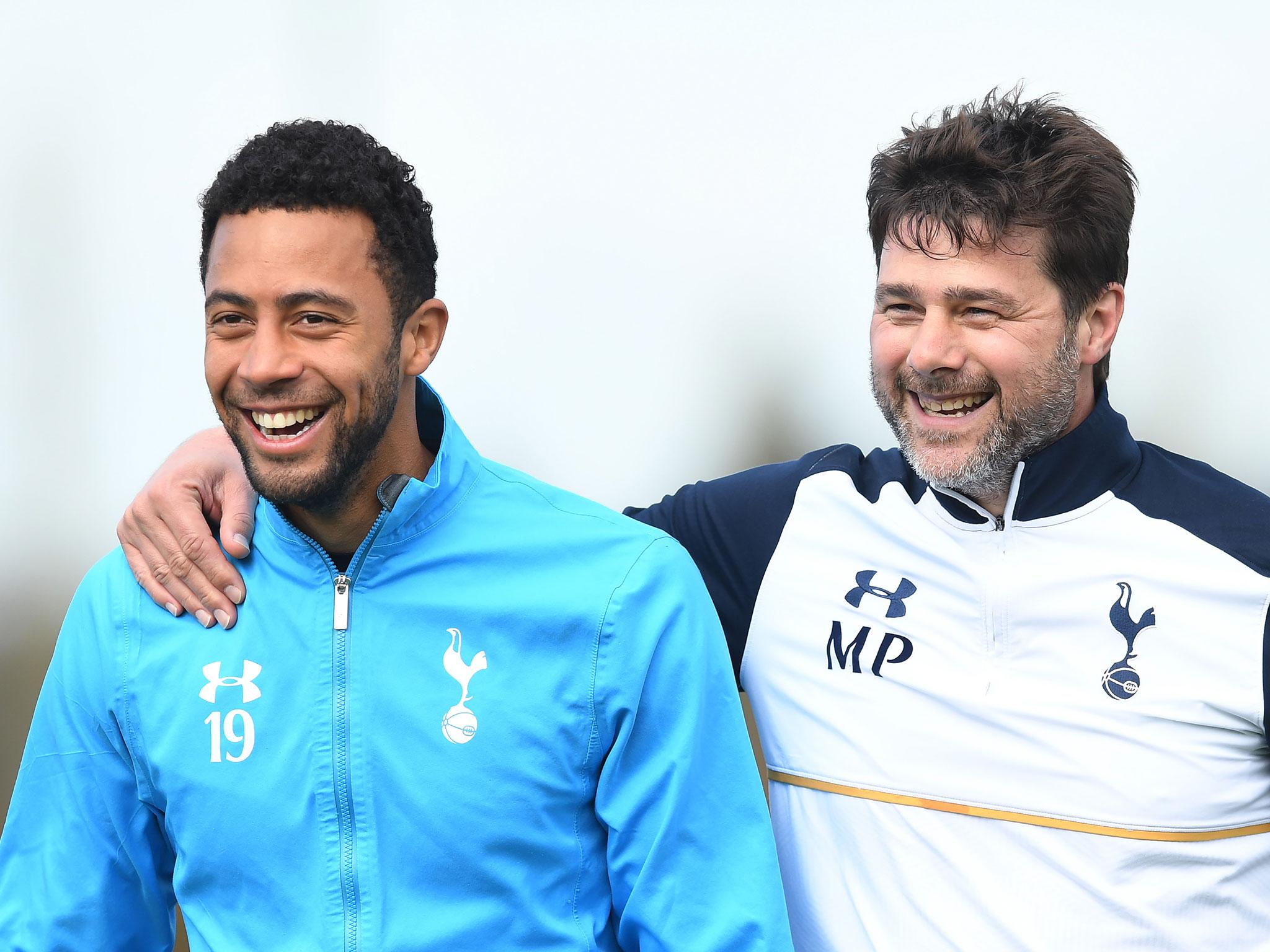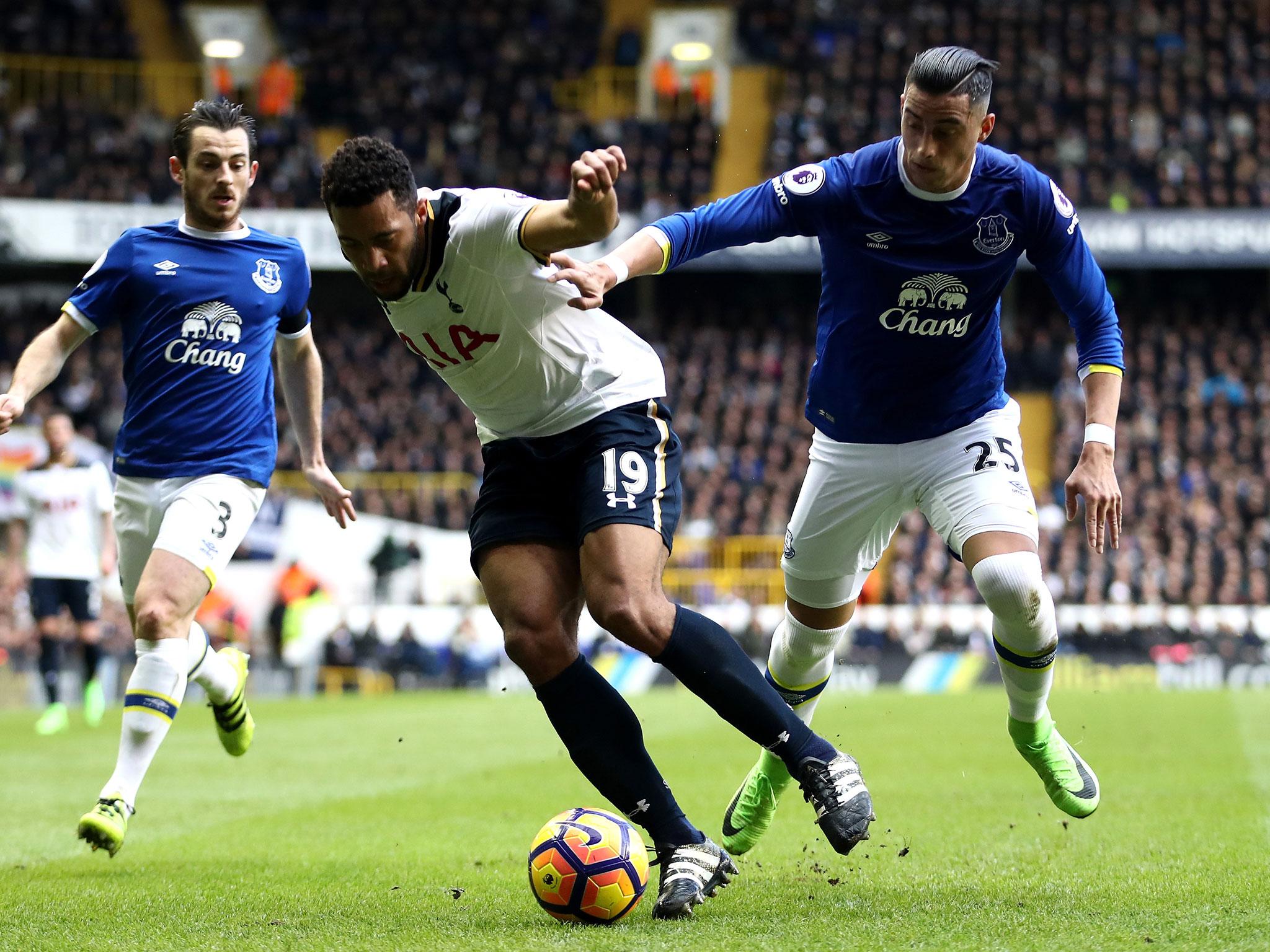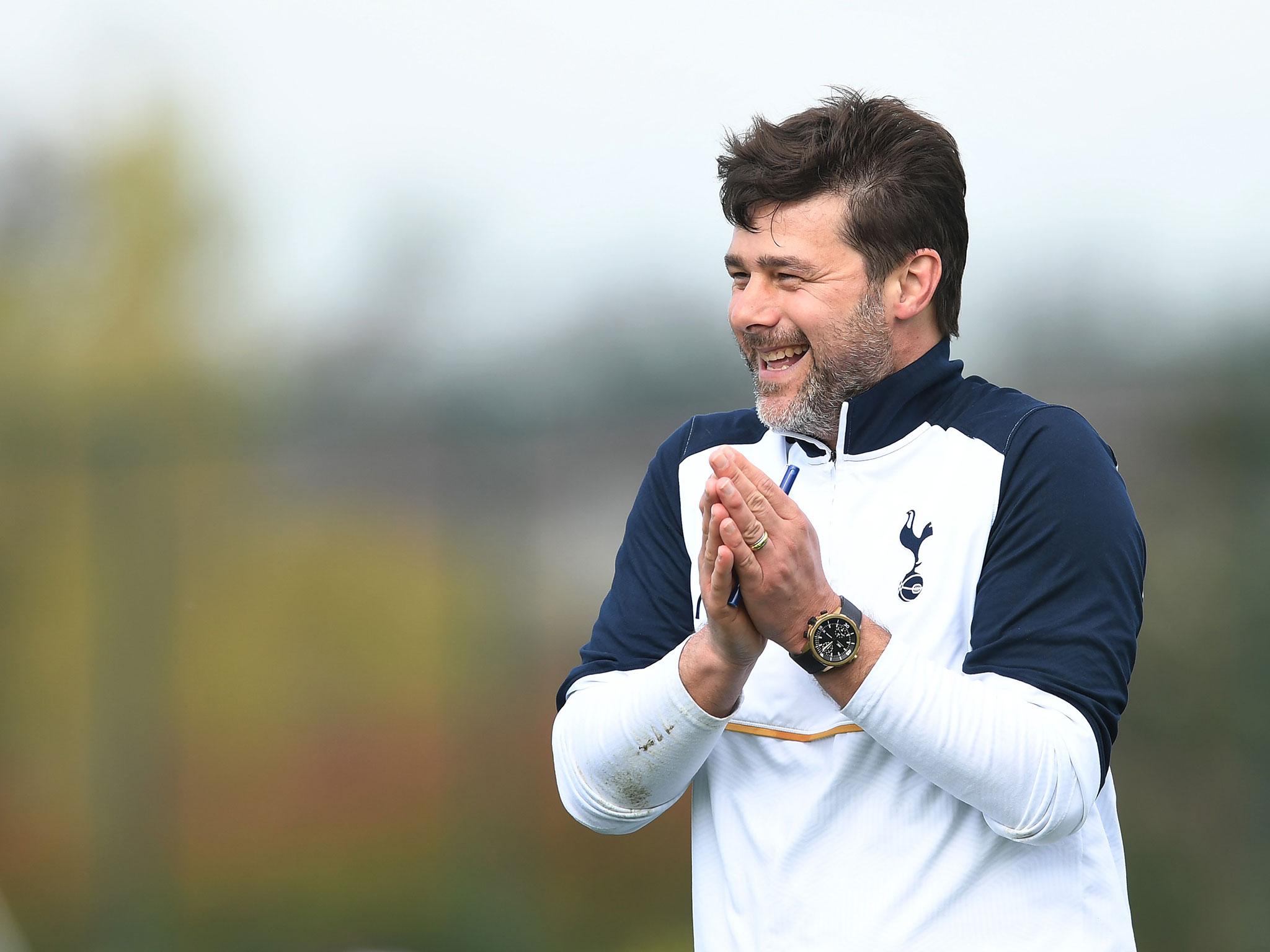Mauricio Pochettino heaps praise on 'genius' Mousa Dembele as he compares him to Diego Maradona and Ronaldinho
He has improved so much that Pochettino wishes he had coached and moulded a teenage Dembele, just as he has coached a teenage Dele Alli, with such remarkable results

Your support helps us to tell the story
From reproductive rights to climate change to Big Tech, The Independent is on the ground when the story is developing. Whether it's investigating the financials of Elon Musk's pro-Trump PAC or producing our latest documentary, 'The A Word', which shines a light on the American women fighting for reproductive rights, we know how important it is to parse out the facts from the messaging.
At such a critical moment in US history, we need reporters on the ground. Your donation allows us to keep sending journalists to speak to both sides of the story.
The Independent is trusted by Americans across the entire political spectrum. And unlike many other quality news outlets, we choose not to lock Americans out of our reporting and analysis with paywalls. We believe quality journalism should be available to everyone, paid for by those who can afford it.
Your support makes all the difference.Diego Maradona, Ronaldinho, Jay Jay Okocha, Ivan De La Pena and Mousa Dembele. Quite a five-a-side team, even now, and without an obvious goalkeeper. But it is also the list of the five “genius players” that Tottenham manager Mauricio Pochettino believes he has been luckiest to work with in his football career.
Dembele has always been a special talent but Pochettino has made him into a special player, the lynchpin of Spurs’ midfield, able to receive the ball almost anywhere and take it forward. Dembele has finally fulfilled all of his obvious promise. He has improved so much that Pochettino wishes he had coached and moulded a teenage Dembele, just as he has coached a teenage Dele Alli, with such remarkable results.
“He has started to work very hard,” said Pochettino, explaining Dembele’s improvement. “We provide individual plans to every player. We are very happy. I always say "Mousa, in my book, you will be one of my genius players" that I have been lucky to meet, with Maradona, Ronaldinho, Okocha and De La Pena, a genius too, and Mousa Dembele. We always told him that if we had taken you at eighteen or nineteen years old, you would have become one of the best players in the world. I would have loved to have taken him on at 18.”
‘Genius’ is Pochettino’s word for Dembele, the tag he gave him after his brilliant performance through injury at the Emirates last November. To hear him talk about the Belgian midfielder it is easy to forget that in Pochettino’s first season at Spurs, Dembele was a peripheral figure.
In 2014-15, Dembele started just 10 Premier League games, fewer than Etienne Capoue and Younes Kaboul, both of whom were in Pochettino’s ‘bomb squad’, barely involved after Christmas. And yet while those two now play for Watford, Dembele is more important to Spurs than ever.
“Mousa Dembele is completely different to two-and-a-half years ago when we arrived here,” Pochettino explained. “He didn't play too much in his first season, he always had problems, physical problems.”
“I must give all credit to these guys,” Pochettino said, pointing to his assistant Jesus Perez. “The sports science, all the medical staff to create now a Moussa Dembele that is strong and can play. If you are honest, you would agree with me.”
The transformation of Dembele from fragile and inconsistent into a robust powerhouse is the story of Spurs’ transformation under Pochettino. Too flaky and too soft under Andre Villas-Boas and Tim Sherwood, Pochettino has turned them into a running and pressing machine, the best athletes in the country, able to stand up to any physical test.

That is what Spurs will need to be when they go to Turf Moor on Saturday afternoon. Burnley away is one of the hardest physical tests in English football, an aggressive 4-4-2 throwback that catches visitors off-guard. That is why Burnley have nine home league wins already, more than Manchester City or Manchester United.
Old Spurs teams might have wilted under Sean Dyche’s organised barrage but this Tottenham side will not. Pochettino has taught Spurs to be aggressive and physical out of possession, and it shows. Pochettino explained at his press conference on Thursday afternoon how he has changed Spurs’ mentality and approach.
“I have tried to convince them that football is not only when you have the ball,” Pochettino said. “When you don’t have the football, it is football too. To fight, to press, to challenge with your opponent. Not to wait and be passive. We need to be aggressive and proactive and to try to challenge the opponent. That is how we are on the training sessions, every single exercise or drill is about playing football but fighting too, when you don’t have the ball.”
That fighting spirit is essential to the training sessions at Spurs. Pochettino likes to take part to prove to his players that even now, 10 years after retiring, he has a thing or two to show the youngsters.
“You know I like to fight with them to show them I am stronger than them, mentally and physically. Sometimes physically I lose the challenge because they are physically stronger,” he said, pointing to his thighs. “But I am more strong here,” pointing to his head.
Sometimes Pochettino is a victim of the competitive atmosphere that he gleefully fosters. Earlier this season he jumped for a 50-50 header with Cameron Carter-Vickers and was flattened, forced to limp off holding his back. On Thursday morning they collided again, while training in their ‘boxes’ drill, and when Pochettino told the story he dramatically held his pained hand.

If there is one counter-point to all of this it is the fact that in the last two seasons, Pochettino’s Spurs have dipped on the final straight of the season. That could suggest that Pochettino’s methods are more geared towards short-term than long-term fitness. What if the same thing happens again this year? Pochettino rejects that theory, to put it mildly.
“When we analyse last season it wasn’t a physical problem,” Pochettino insisted. “It was a mental problem that the team gave up in the last two or three games. It wasn’t physical, it wasn’t physical. Now the challenge is to keep fighting until the end. We thought too much about the summer, the Euros, everything else and we lost a little bit of focus. Now the focus is to keep fighting. The difference you can make is here [in your head], now. If you are not ready in your mind to compete, then it’s impossible.”
Join our commenting forum
Join thought-provoking conversations, follow other Independent readers and see their replies
Comments